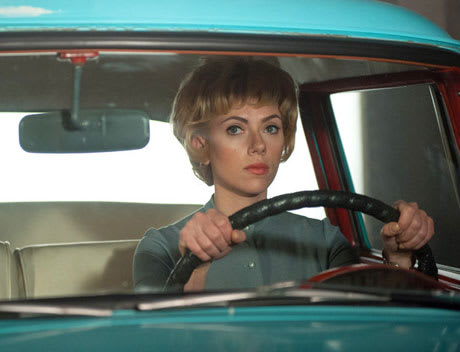On the surface, Hitchcock tells the engrossing behind-the-scenes story of the making of the classic Psycho, but that merely provides the backdrop for a complex domestic partnership to emerge, detailing the precarious balance that develops when the personal and the professional mingle together with a spouse. Proving the adage that "behind every great man is a great woman," it is a fascinating study of how the act of collaboration can take on many forms in a marriage.
After the success of North By Northwest in 1959, legendary director Alfred Hitchcock (Anthony Hopkins) is at a professional crossroads. While many believe that at 60 his best work is surely behind him, Hitchcock is driven to find a project to reinvent himself with and push the boundaries of the suspense genre even further. When he reads true crime novel Psycho, he ignores the advice of nearly everyone and pushes forward with the project, even financing the adaptation himself in a nearly unprecedented deal with Paramount.
His wife, Alma Reville (Helen Mirren), is one of the few that stands behind him, agreeing to risk all they have to support his ambitions. Meanwhile, she's assisting writer Whitfield Cook (Danny Huston) in adapting his novel, an act that fuels much jealousy and paranoia in Hitchcock. As tensions mount between Alma, Paramount and the Production Code board, Hitchcock struggles to keep it all together in the face of potential disaster.
With an assist from some stellar make-up, Hopkins does a fantastic job embodying Hitchcock, humanizing the famous persona while still capturing some of his more grandiose characteristics, including his deliberately orotund speaking voice. Though the subject matter is largely dramatic, the film does well to include many welcome moments of his trademark dry humour.
It's in the dynamics of the women surrounding Hitchcock that the film finds its most fertile ground. Working with beautiful actresses such as Janet Leigh (Scarlett Johansson) and Vera Miles (Jessica Biel), the film is observant in the ways the director managed to subtly manipulate them, using his power to build them up and then cast them aside at the slightest hint of disloyalty. In Alma, however, he found someone who refused to be viewed as anything but his equal.
We all know how things ended and yet there's still great pleasure in watching the master of suspense listen through a door to the squeals of a theatre experiencing the shower scene for the first time, revelling in playing them like a true maestro.
(Fox)After the success of North By Northwest in 1959, legendary director Alfred Hitchcock (Anthony Hopkins) is at a professional crossroads. While many believe that at 60 his best work is surely behind him, Hitchcock is driven to find a project to reinvent himself with and push the boundaries of the suspense genre even further. When he reads true crime novel Psycho, he ignores the advice of nearly everyone and pushes forward with the project, even financing the adaptation himself in a nearly unprecedented deal with Paramount.
His wife, Alma Reville (Helen Mirren), is one of the few that stands behind him, agreeing to risk all they have to support his ambitions. Meanwhile, she's assisting writer Whitfield Cook (Danny Huston) in adapting his novel, an act that fuels much jealousy and paranoia in Hitchcock. As tensions mount between Alma, Paramount and the Production Code board, Hitchcock struggles to keep it all together in the face of potential disaster.
With an assist from some stellar make-up, Hopkins does a fantastic job embodying Hitchcock, humanizing the famous persona while still capturing some of his more grandiose characteristics, including his deliberately orotund speaking voice. Though the subject matter is largely dramatic, the film does well to include many welcome moments of his trademark dry humour.
It's in the dynamics of the women surrounding Hitchcock that the film finds its most fertile ground. Working with beautiful actresses such as Janet Leigh (Scarlett Johansson) and Vera Miles (Jessica Biel), the film is observant in the ways the director managed to subtly manipulate them, using his power to build them up and then cast them aside at the slightest hint of disloyalty. In Alma, however, he found someone who refused to be viewed as anything but his equal.
We all know how things ended and yet there's still great pleasure in watching the master of suspense listen through a door to the squeals of a theatre experiencing the shower scene for the first time, revelling in playing them like a true maestro.
